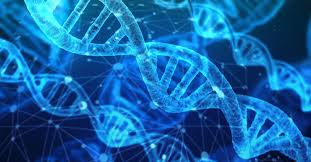SCIENCE

SCIENTISTS CREATE ‘EVOLUTION ENGINE’ TO DEVELOP SUPER-PROTEINS 100,000× FASTER
In a groundbreaking development that could revolutionize medicine and biotechnology, scientists at Scripps Research have introduced a synthetic biology platform capable of evolving proteins up to 100,000 times faster than natural processes. This innovative system, known as T7-ORACLE, was detailed in the journal Science on August 7, 2025, and holds the potential to accelerate the development of therapeutic proteins for a range of diseases, including cancer and neurodegenerative disorders.
How It Works
Traditionally, the process of evolving proteins in the lab referred to as directed evolution entails mutating a gene, testing the mutations, and repeating this cycle over weeks or months. T7-ORACLE alters this method by enabling proteins to evolve within living E. coli cells every time the cells divide, which occurs approximately every 20 minutes. The key to this system lies in an orthogonal DNA replication mechanism derived from bacteriophage T7, a virus that infects bacteria. By engineering its DNA polymerase to create more errors, scientists can introduce mutations into target genes at exceptionally high rates without harming the bacteria’s own genome.
Proof of Power
To showcase the capabilities of T7-ORACLE, the research team inserted an antibiotic resistance gene into the system and exposed the bacteria to progressively higher doses of antibiotics. Within less than a week, the gene evolved to withstand antibiotic levels 5,000 times higher than those it could previously endure, successfully mimicking and in some instances, exceeding real-world resistance mutations observed in hospitals.
Why It Matters
The T7-ORACLE platform is not limited to antibiotic research. Scientists can incorporate human, viral, or other genes to enhance cancer treatments, develop more effective enzymes, or create entirely new protein functions. Since E. coli is easy to cultivate and commonly used in laboratories, T7-ORACLE seamlessly integrates into standard workflows without requiring specialized equipment.
The Future of Protein Engineering
Looking ahead, researchers Schultz and Diercks envision utilizing T7-ORACLE to evolve enzymes that can operate with unnatural genetic materials, representing a significant step toward synthetic genomes with completely new properties. As Schultz aptly states:
"This represents a significant development in our ongoing coverage of current events."— Editorial Board









